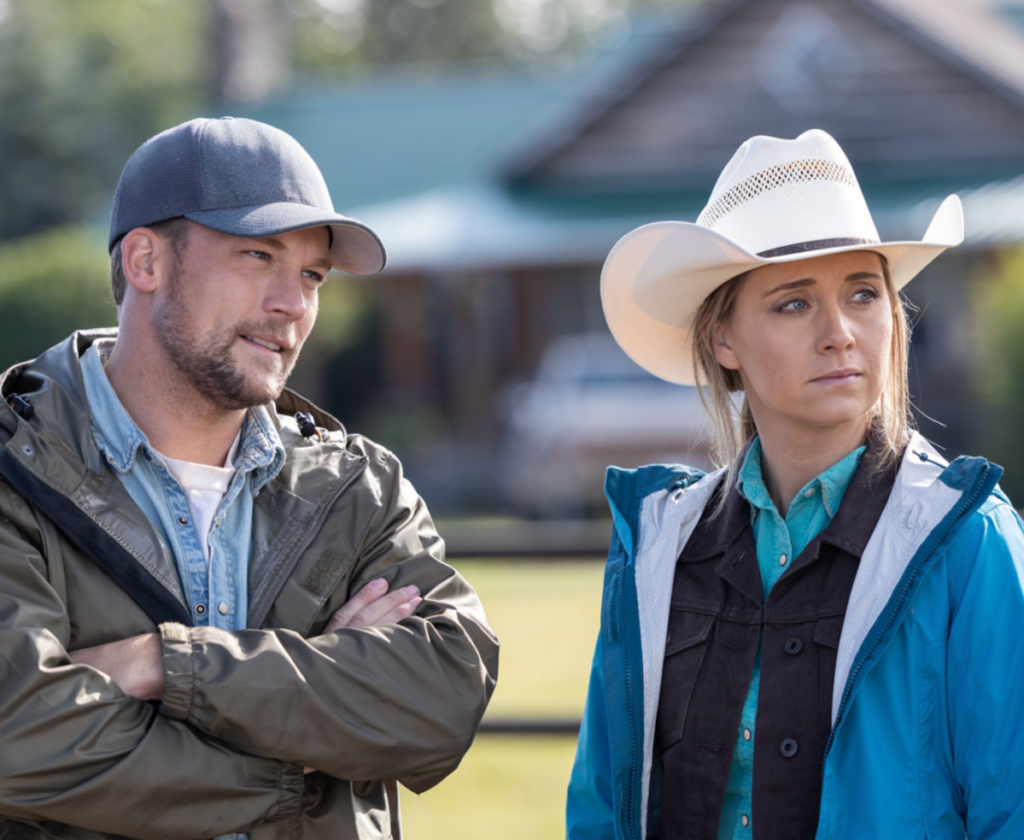The episode “You Can Lead a Horse to Water from “Heartland” (Season 18, Episode 3) exemplifies the show’s long-standing exploration of emotional resilience, community, and familial bonds amidst external challenges. Airing on October 20, 2024, this episode aligns itself with some of the most critical themes central to the series—survival, adaptability, and human connections to both nature and each other. The drought faced by the family, a storyline that draws in environmental crises, presents a narrative where nature directly impacts the livelihood and emotional well-being of the characters. It also taps into the broader discussion of climate change, a subtle but increasingly present theme within contemporary media. The episode’s deeper exploration of the drought offers both physical and metaphorical layers, making it a ripe subject for critical analysis.
Environmental Struggles and Their Metaphors
At first glance, the drought at Heartland Ranch might seem like just another external threat to the family’s operations. However, a closer look reveals the drought as a stand-in for the personal and emotional challenges faced by the characters. Much like how the family’s land is parched and in dire need of water, several of the characters—Katie in particular—find themselves in need of emotional sustenance. The title itself, “You Can Lead a Horse to Water,” is a well-known idiom that emphasizes the limitations of helping others if they are unwilling or unable to help themselves. This philosophical concept finds itself echoed in multiple storylines within the episode, creating a complex web of emotional narratives that tie into the central theme of resilience.
In past “Heartland” episodes, crises involving animals or the land have often been reflections of internal familial strife, such as disagreements, losses, or insecurities. This episode is no different, using the drought as both a literal and figurative dry spell. The process of digging for a new well, particularly the family’s search for the ideal location to drill, serves as a metaphor for characters trying to “dig deep” into their reserves of strength and perseverance. The search for water takes on a symbolic weight as the characters face personal droughts of their own.
Katie and the Intergenerational Thread
Katie’s concern for her grandfather’s health offers another layer to the episode’s exploration of care and responsibility. While the drought demands physical action and resourcefulness, Katie’s subplot revolves around emotional caretaking. Her worries about her grandfather mirror the drought situation in that both represent an immediate but potentially unaddressed crisis. The theme of concern for one’s elders introduces an intergenerational thread, which is a recurring narrative in “Heartland”. The series has often focused on the transmission of values, knowledge, and responsibilities from one generation to the next. Here, Katie’s concern showcases the burden of being the younger generation in a family struggling with both tangible and intangible challenges.
The episode’s decision to focus on Katie’s worries highlights the broader challenge of accepting the frailty of one’s loved ones. Her grandfather’s health, much like the drought, represents an issue that might be beyond the family’s control, yet it demands constant vigilance and attention. This contrast between what can and cannot be controlled further deepens the thematic core of the episode, emphasizing human vulnerability. The characters must navigate a world where survival often depends on outside forces—whether it’s the rain or the health of a loved one.
Community and Collective Action
One of Heartland’s signature strengths is its depiction of community and collective action. The series consistently shows how the Bartlett-Fleming family leans on both each other and their neighbors to overcome hardships. This episode is no exception. The hunt for the best location for a new well requires cooperation, not just from the family members but from their larger community as well. This reliance on community reflects the show’s broader belief in the importance of coming together during times of crisis. From a critical standpoint, it’s easy to draw parallels between this episode and real-world environmental issues that require collective effort and cooperation.
The family’s engagement in a problem as foundational as finding water taps into a broader critique of how people today handle environmental crises. The well-digging process becomes emblematic of broader issues such as sustainability, resource management, and the increasing scarcity of natural resources due to climate change. The family’s struggle to find water serves as a microcosm for larger conversations around environmental stewardship and the consequences of human inaction. The episode implicitly asks: How long can the land (and by extension, the people) survive under increasing pressures? How can a family, or a community, take control of something as uncontrollable as nature?
The Continuation of Long-Term Themes
“Heartland” has always been a show grounded in long-term character development and thematic consistency. Over the years, the series has evolved from a simple drama about a family managing a horse ranch into a complex narrative exploring themes of survival, connection, and the passage of time. In Episode 1803, these themes reach a new level of poignancy, particularly through the lens of environmental hardship. The family’s struggle to find water mirrors earlier seasons, where similar natural disasters forced them to come together and make difficult choices. This kind of narrative continuity is one of the show’s hallmarks.
Furthermore, the drought storyline hearkens back to earlier “Heartland” episodes that dealt with weather-related challenges. Whether it was dealing with harsh winters, unexpected storms, or now a drought, “Heartland” consistently ties its characters’ emotional arcs to the natural world around them. This approach not only roots the show in its rural setting but also makes it a more profound meditation on how people exist in harmony (or conflict) with nature.
“You Can Lead a Horse to Water” is an episode that deeply intertwines physical and emotional struggles. Through the lens of the drought, the episode explores questions of survival, care, and control, not just over the land but over one’s own life and relationships. Katie’s subplot about her grandfather’s health adds an emotional counterpoint to the more physical challenge of finding water, creating a rich tapestry of themes that are sure to resonate with long-time fans of the series.
From a critical perspective, the episode invites a conversation about the broader implications of the drought as a symbol for emotional depletion and the need for renewal—whether that renewal comes from digging a new well or from finding emotional reserves within oneself and one’s family. As “Heartland” continues to evolve, episodes like this one demonstrate the show’s ability to remain both relevant and resonant, delving into universal human struggles through the specific lens of ranch life and familial bonds.
No comments yet.







